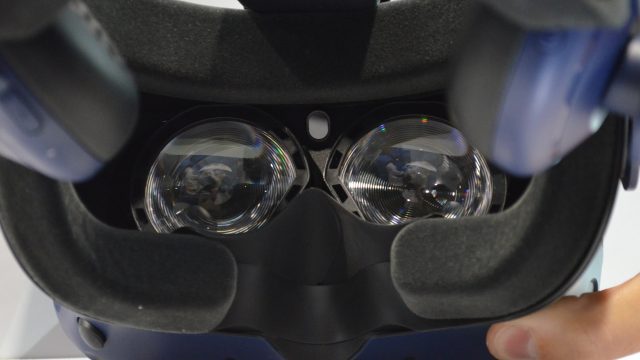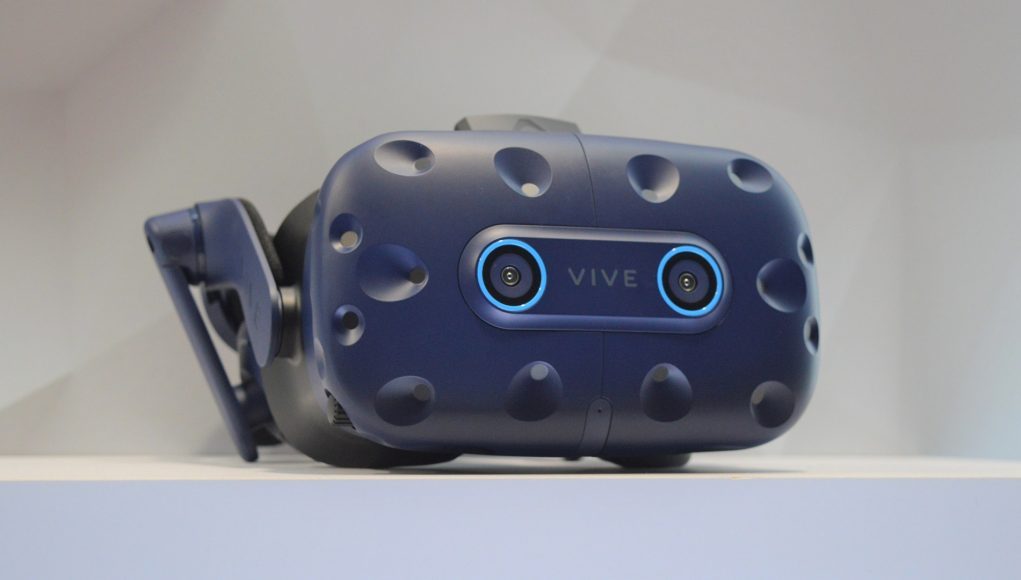Today at CES HTC made a slew of announcements about the Vive ecosystem, including a new, upcoming version of the Vive Pro called the Vive Pro Eye.
Revealed on stage today at the company’s CES press event, the Vive Pro Eye appears to be largely the same as the Vive Pro, but now with integrated eye-tracking. HTC says that the Vive Pro Eye will launch in Q2 of 2019. They aren’t talking about the price yet, but we expect it will be at least as much, if not more, than the current Vive Pro which starts at $800 for the headset alone.
While the company was a little iffy on their target-market messaging when they launched the Vive Pro last year—which lead to some anger by enthusiasts over the enterprise-focused price—HTC is being much more clear this time around: “Vive Pro Eye is targeted at the enterprise market where eye tracking has a number of immediate benefits […].”
Of the various potential uses of eye-tracking—like foveated rendering, user-intent analysis, and gaze-based interactions—it isn’t clear what, if any, services will be built into the headset’s core software as opposed to merely providing the eye-tracking data for developers to make use of.

While the Vive Pro Eye will largely be the same as the original Vive Pro, including the same resolution, the company said there are some minor tweaks here and there, including modified padding on the headphones to improve audio.







